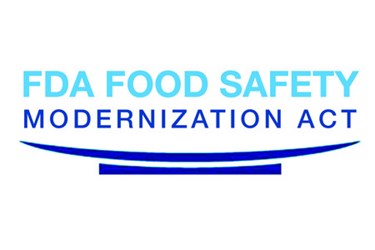How FSMA Could've Helped ConAgra
By Melissa Lind, contributing writer

FSMA is the catalyst of big changes in the food industry. With food safety issues being an on-going concern, FSMA requirements aim to help prevent contamination problems faced by food manufacturers. As some food contamination events are preventable, domestic food makers that don’t adhere to FSMA regulations may find themselves in big trouble, even criminal trouble.
In 2007, more than 600 people in 47 states were sickened by salmonella contamination of ConAgra’s Peter Pan and Great Value Peanut Butter. At the time, ConAgra blamed the outbreak on a leaky roof which allowed for excess moisture to contribute to bacteria growth on raw peanuts used in production. The U.S. Government investigation of the salmonella outbreak has been completed and the company is facing misdemeanor criminal charges and will pay an $11.4 million fine. This is in addition to any civil judgements filed by individuals. The conclusion of this investigation falls on the heels of other recent investigations resulting in hefty fines and criminal charges within the past two years including:
- Two executives in the Iowa egg industry were convicted of misdemeanor charges, fined a total of $7 million, and sentenced to three months in jail after a 2010 Salmonella outbreak.
- Two farmers in the Colorado cantaloupe farming industry received five years’ probation after being convicted of misdemeanor charges in a 2011 Listeria outbreak which resulted in 33 deaths.
- Four former owners and executives of the Peanut Corporation of America were charged with over 76 counts of criminal activity including conspiracy, fraud, and obstruction of justice after knowingly shipping salmonella-tainted peanut butter in a 2009 Salmonella outbreak in which resulted in 714 illnesses and at least 9 deaths.
Related: Are You Prepared For The High Cost Of A Food Recall?
One thing that may save ConAgra from more serious criminal charges is that the company did not appear to have knowingly ignored safety issues and quickly took responsibility for the event, voluntarily recalling three years’ worth of product. Following the exposure, ConAgra identified the cause, repaired the damaged roof, and enacted additional safety testing.
It is worthy to note that these contamination events occurred prior to FSMA’s signing and similar events have contributed to the need for the overhaul of food safety regulations. Portions of the new regulations may have prevented some of these events, or at a minimum, required systems which may have allowed the companies to act more quickly in implementing a recall.
These are just a few examples of why food makers simply must pay careful attention to every occurrence with their facility and that reacting to food safety events is simply not enough to protect consumers. FSMA will increase the requirements for food manufacturers to be positioned to prevent these events, react quickly to them, and offer food makers with better tools for tracking and tracing products, which will enable a speedy recall.
